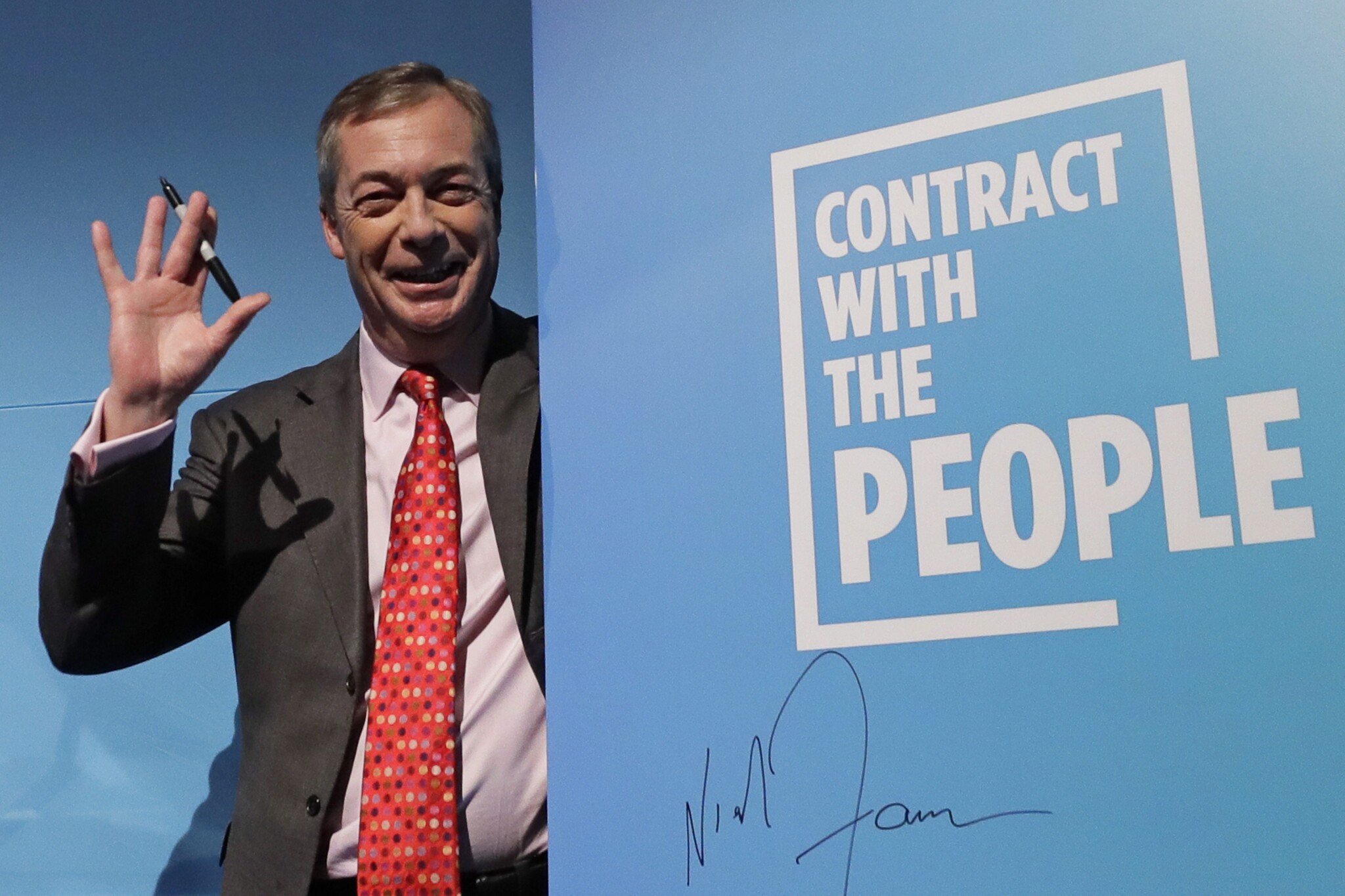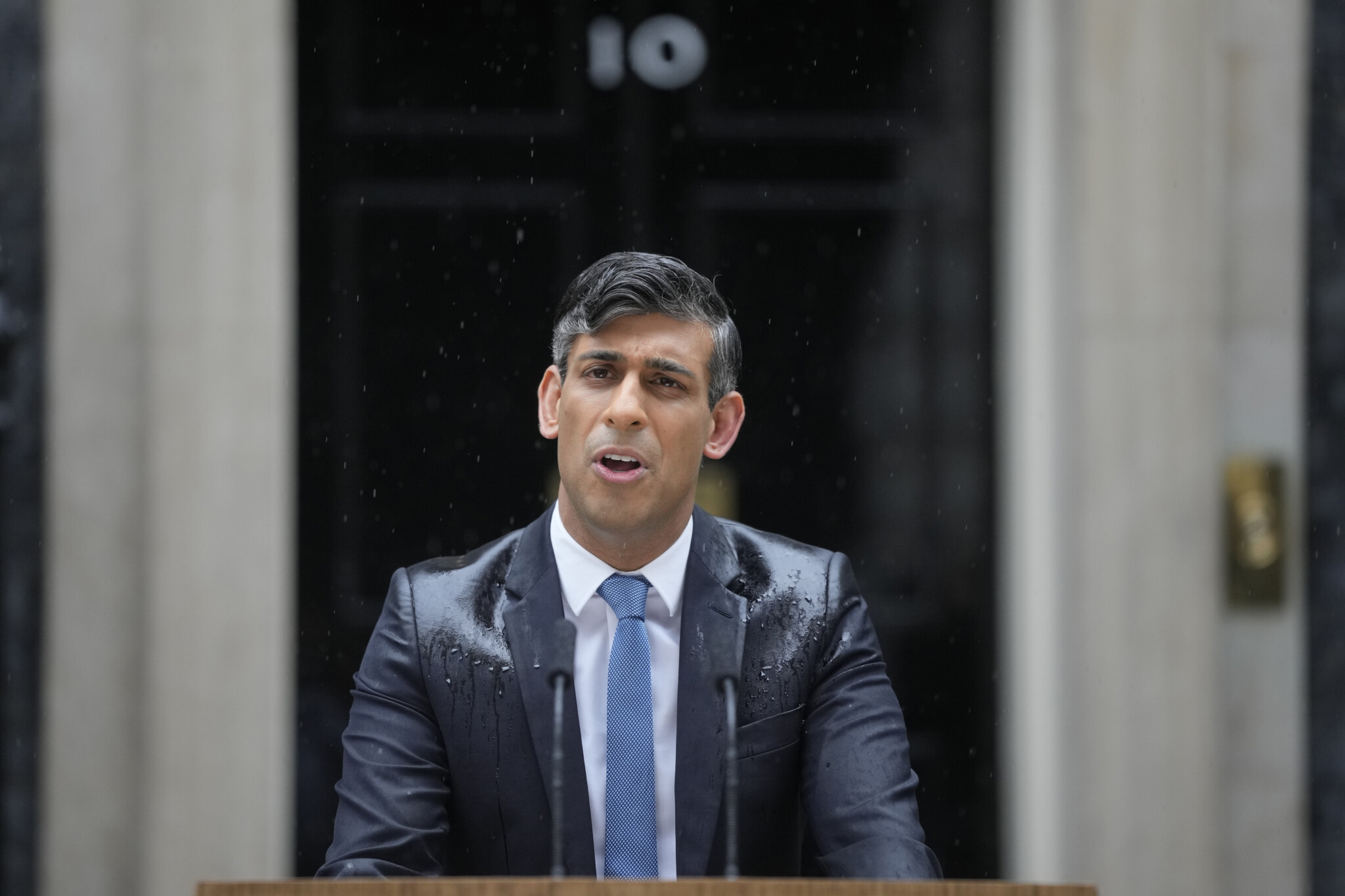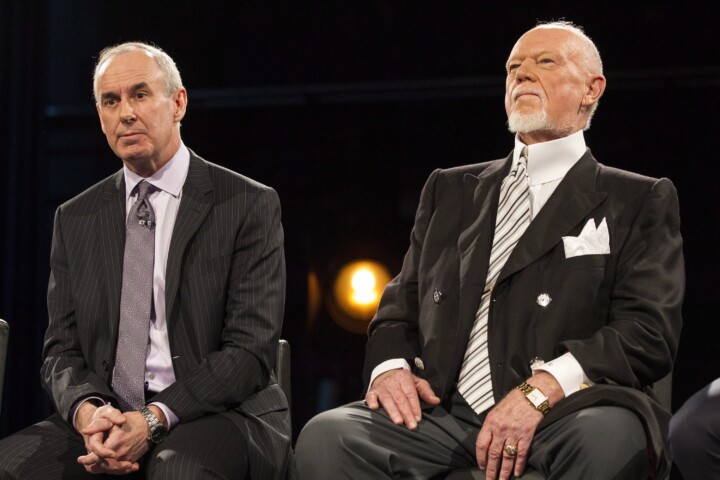The first leader’s debate of the U.K. general election took place on Tuesday night, and if you weren’t aware of it, it’s not just because it wasn’t televised in Canada. It would probably come as news to most Brits as well.
ITV introduced the contest like a heavyweight title fight: Sunak vs Starmer! The reality was more like paint drying vs grass growing. Tryptophan vs Sudafed. Two navy suits, two white shirts, two pained smiles. The only difference was that Sunak’s tie was blue while Starmer’s was mauve—presumably beige would have been a little too daring.
The charisma deficit was larger than the country’s current budget deficit (£120 billion pounds and counting—yes, after 14 years of Tory government, the country has its highest ever tax burden and still has to borrow to cover its expenses, a fact that rather blunts Sunak’s warning that life would cost more under Labour).
What the candidates lacked in interest, however, they made up in energy. Whether it was nerves or the caffeine their handlers plied them within their green rooms, both Starmer and Sunak came out babbling and didn’t let up for the whole hour. They repeatedly talked over each other and over moderator Julie Etchingham, heedless of her increasingly plaintive attempts to bring order to the cacophony.
Viewers tuning in late must have wondered if there were any format at all. “Ok, thank you, ok, I just, thank you, THANK YOU, ok, I am, no, I am just, ok … thank you very much, I am just going to … thank you, THANK YOU, no, actually, actually, if I can just intervene there, ok, thank you …” Alas, energy doesn’t make boring interesting, it just makes it manically boring. Excitable is not the same as exciting.
Attacking early, Starmer repeatedly brought up Sunak’s predecessor, Liz Truss, who is taking a break from flogging her delusional memoir-cum-manifestoAt 344 pages, the book has one page for each day in office … plus 300. to run again. Perhaps sensing the limited potential of tying Sunak to the woman he opposed for his party’s leadership, Starmer soon switched tactics. “Desperate” became Starmer’s word of the night, often muttered off-camera while Sunak was speaking.
Oddly, Sunak didn’t try to link Starmer with his own predecessor, even though Starmer had staunchly backed the electorally toxic Jeremy Corbyn at the last election. On tax, foreign affairs, labour unrest, and immigration in particular, I kept waiting for Sunak to respond: “You wanted the [bolshy/terrorist sympathiser/radical/open borders] Jeremy Corbyn to be prime minister!”
The only time a Canadian watching the debate might have perked up is when the audience member “Steven from Warrington” asked: “Why should I trust either of you about such large numbers of people risking their lives to cross the channel to gain access to the U.K. illegally?” Not exactly a question that would make the studio cut in our own election debates, at least not outside Quebec.
Even more surprising to a Canadian viewer, both leaders actually answered the question. Sunak went first. There was no waffling and no throat-clearing about what a generous and welcoming country we are. “Immigration is too high,” he began, and for the rest of the segment he and Starmer accused each other of being less likely to reduce annual net migration—legal and illegal—to the U.K.
For more decades, more Canadians have thought immigration is too high than too low, only to elect governments who raised annual levels, expanded temporary workers, and failed to remove visa overstays or stop illegal border crossings.A notable exception was the crackdown on fraud, the tightening of standards, and the capping of certain categories of permanent and temporary immigration under then-Minister of Immigration, Jason Kenney. Never once have they heard a leader—or, heck, an MP—of any mainstream party agree with them, let alone heard unanimous agreement from both Right and Left.
If that exchange briefly roused your Canadian viewer, the rest of the debate was forgettable. Both leaders claimed to have plans. At one point, Sunak even claimed to have bold plans. Starmer, who could make a windsock look decisive, wouldn’t go quite that far, offering only the promise of situational boldness—and only then, he gave the impression, after prolonged and careful consultation.

Nigel Farage, then-leader of Britain’s Brexit Party, poses after speaking at the launch of their policies for the General Election campaign, in London, Nov. 22, 2019. Kirsty Wigglesworth/AP Photo.
If there was little excitement in the room, there is finally some in the race. The day before Sunak and Starmer staged a debate that was the political equivalent of browsing a rack of sweater vests, Nigel Farage announced that he had changed his mind and would, after all, assume the leadership of Reform UK and stand as a candidate in Clacton. You could hear the collective buzz of giddy relief from the media. Farage had just tagged the grayscale election with neon graffiti.
Normally the candidacy of a man who has lost all seven of the seats he has contested wouldn’t arouse much interest, but Farage is different. Whatever else you can say about him (and there is plenty), he is the one thing neither mainstream party leader is today: fun. Announcing his candidacy in an online video set to Eminem’s “Without Me,”“I said this looks like a job for me / So everybody, just follow me / ‘Cause we need a little controversy / ‘Cause it feels so empty without me.” Farage entered the ring with a flying elbow from the top ropes. A meme personified.
Vague on policy (he has that, at least, in common with other parties), but heavy on brio, Farage is the Tories’ worst nightmare. He may have only an outsider’s chance in his chosen seat of Clacton, but the ripples his campaign will cause across the country, the media attention he will draw, and—most importantly—the vivid technicolour contrast he poses, make an already embattled Tory party look enfeebled.
Entering the election, polls showed Labour winning a massive majority of 420 out of 650 seats in the House of Commons. Some Conservative party pessimists even whispered about a sub-100 seat wipe-out. I didn’t believe them. I thought that the more voters saw of Starmer, the more enthusiasm would ebb from Labour and the Tory vote would steady. I thought they would lose badly, but not catastrophically. With Farage in the mix, I’m now on team wipeout.
Recommended for You

Falice Chin: A tale of two (Poilievre) ridings

The Notebook by Theo Argitis: Mark Carney’s first major tests

Fred DeLorey: Why the NDP may be in even bigger trouble than we think

Michael Bonner: Are we witnessing the last gasp of Iran’s Islamic Republic?





